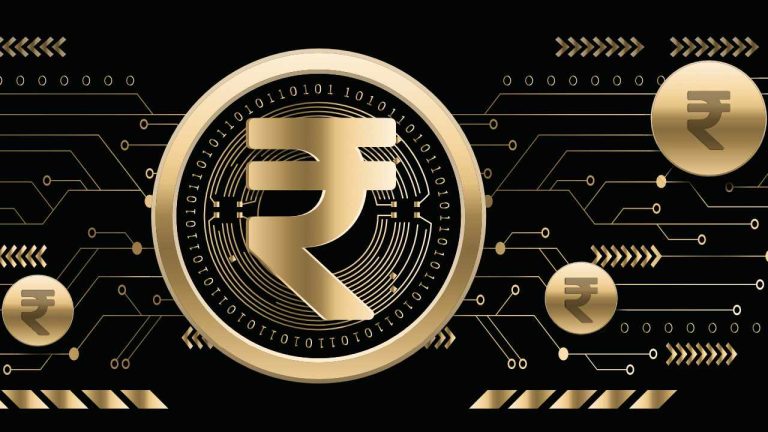
India’s central bank, the Reserve Bank of India (RBI), is launching its first digital rupee pilot on Nov. 1. with the participation of nine banks. “Settlement in central bank money would reduce transaction costs by pre-empting the need for settlement guarantee infrastructure or for collateral to mitigate settlement risk,” said the central bank.
RBI’s First CBDC Pilot Starts Nov. 1
India’s central bank, the Reserve Bank of India (RBI), announced Monday that “The first pilot in the digital rupee — wholesale segment (e₹-W) shall commence on November 1, 2022.” The announcement adds:
Nine banks, viz., State Bank of India, Bank of Baroda, Union Bank of India, HDFC Bank, ICICI Bank, Kotak Mahindra Bank, Yes Bank, IDFC First Bank, and HSBC have been identified for participation in the pilot.
“The use case for this pilot is settlement of secondary market transactions in government securities,” the RBI described. “Use of e₹-W is expected to make the inter-bank market more efficient. Settlement in central bank money would reduce transaction costs by pre-empting the need for settlement guarantee infrastructure or for collateral to mitigate settlement risk.”
The RBI noted that future pilots will focus on other wholesale transactions and cross-border payments. They will take into account the findings from the first pilot.
The central bank further detailed:
The first pilot in digital rupee — retail segment (e₹-R) is planned for launch within a month in select locations in closed user groups comprising customers and merchants.
Earlier this month, the Indian central bank published a report explaining various aspects and risks of its central bank digital currency (CBDC).
According to the Atlantic Council’s Geoeconomic Centre, 105 countries, representing over 95% of global GDP, are currently exploring a CBDC. The Bank of International Settlements (BIS) also released a report in May showing that nine out of 10 central banks globally are exploring CBDCs. The BIS said: “The emergence of stablecoins and other cryptocurrencies have accelerated the work on CBDCs.”
Meanwhile, the U.S. has not decided whether to issue a central bank digital currency. Federal Reserve Chairman Jerome Powell recently said that a digital dollar will take at least a couple of years. Some lawmakers are not convinced about the need for a digital dollar, including Fed Governor Christopher Waller who said last week that he is not a big fan of the Fed issuing a central bank digital currency (CBDC).
Do you think India should issue a central bank digital currency? Let us know in the comments section below.





